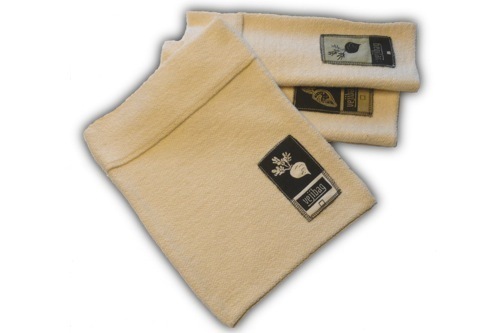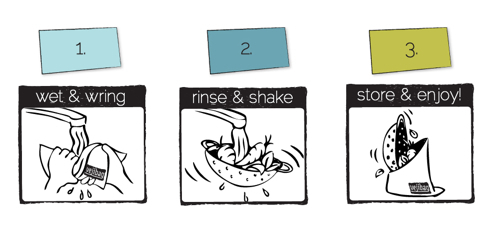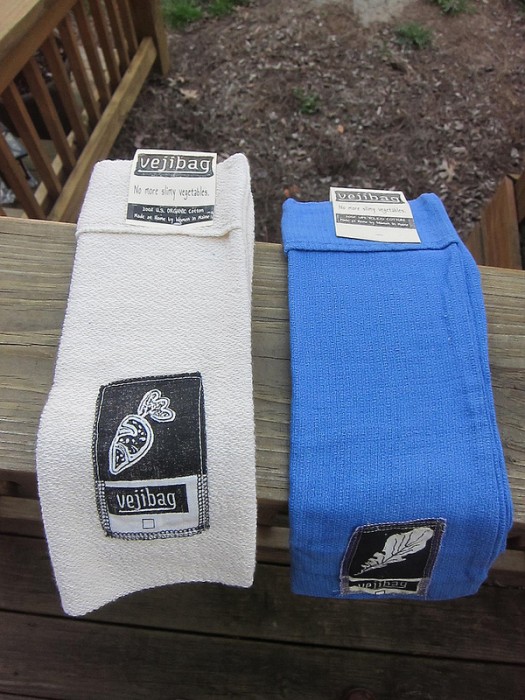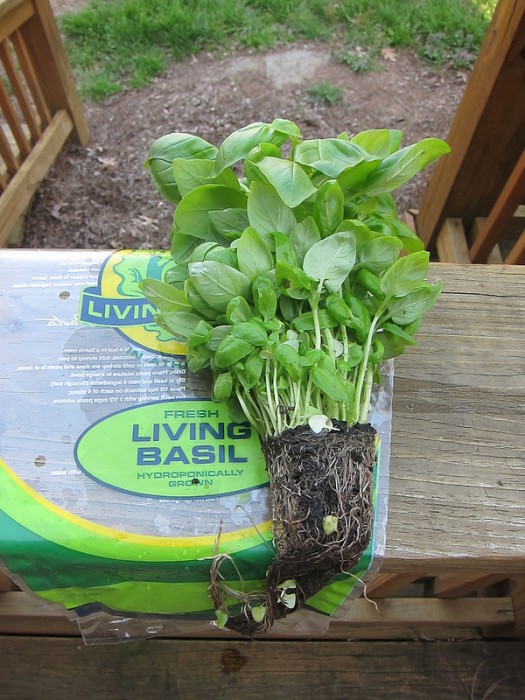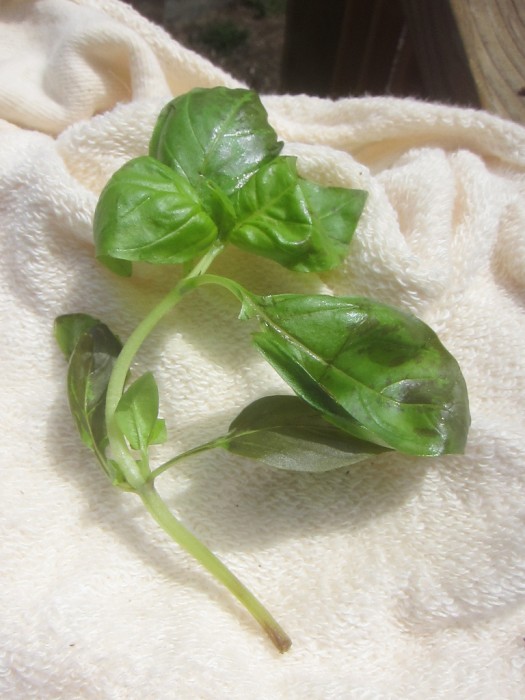Now that April showers are giving way to May flowers, there are also plenty of wonderful greens coming up in farms and gardens. My family has been members of a CSA (Community Supported Agriculture) share for years. If you’ve never participated in a CSA, basically the deal is that you pay a farmer in advance of the growing season in return for a bushel or half bushel of vegetables every week. We love having lots of fresh veggies that we know exactly where they came from, but being a two-person household it’s hard to get through all those greens in a week before the next mountain of kale arrives.
Worst of all, since I hate to waste food, we end up with bags of vegetables all over the crisper of our refrigerator which we sometimes discover a couple of weeks too late. The once-beautiful green leaves have turned brown and slimy and I get really depressed. Fortunately, a clever and thoughtful woman from Maine named Sally Erickson has come up with an excellent solution: Vejibags.
Vegetables get slimy really fast if you leave them in a plastic bag. Basically, they need to breathe to stay crisp, but vegetables need a slow supply of constant high humidity to maintain their color and freshness. Erickson makes her Vejibags out of 100% US Organic Cotton or 100% UpCycled Cotton. The resulting product is attractive and easy to use.
Basically, all you have to do is wet the bag and wring it out, or you can run them through your washer and spin them halfway dry, and then put your vegetables in the bag to store in your refrigerator. After you rinse your veggies to clean them and put them in the damp bag, that should be plenty of moisture to keep them for at least a week.
The bags are attractive, and in addition to being ecologically sound compared to a plastic bag, they also have a neat social responsibility story behind them. When Erickson moved to Maine, she encountered a group of women in the Eastport, ME area who were underemployed and looking for work. She has put together a team of work-at-home Veji seamstresses who keep up with orders and supply the handcrafted inventory. Vejibag now provides flexible, well-paid work for several women in Eastport. They even refer to themselves as “The Eastport Sack Sisters.”
So how well do they work? I tried them out with a batch of fresh basil that was still alive when I bought it. It was still too early to harvest any basil from my herb garden, so if I was going to use it in recipes, this was the best way. I followed the simple directions and put the rinsed basil in the damp bag. Then I waited.
Well actually, I made some homemade pizza on my kamodo grill and topped it with some of that great basil. The rest I split between a Vejibag and the plastic bag it came in.
After a week, I checked the Vejibag and was pleasantly surprised. While there was a little bit of yellowing, the basil was still crisp and tasty. Since I usually chop or tear basil leaves when I cook with it, you couldn’t even notice the occasional off-color spot.
The basil that had remained in the plastic bag was basically unusable though. Even though it was still supposed to be living and had roots attached, it had grown slimy on had a bit of a nasty odor to it. Considering what I paid for the handful of herbs, I could pretty much have paid for the $10 Vejibag in a couple of uses.
Plus the knowledge that not only am I limiting food wastage but also helping to keep a small community employed gives me a good feeling that was even better than that pizza. Well, almost…I do make a pretty good pie!
Vejibags are available to purchase on the company’s website.
MSRP: $10.00-$16.00
What I Like: Ecologically sound solution to the problem of food wastage.
What Needs Improvement: If you don’t consider the cost of wasted food, they might seem a little pricey for a cotton bag.
Source: Review sample provided by a friend who had purchased them directly from Vejibags.

